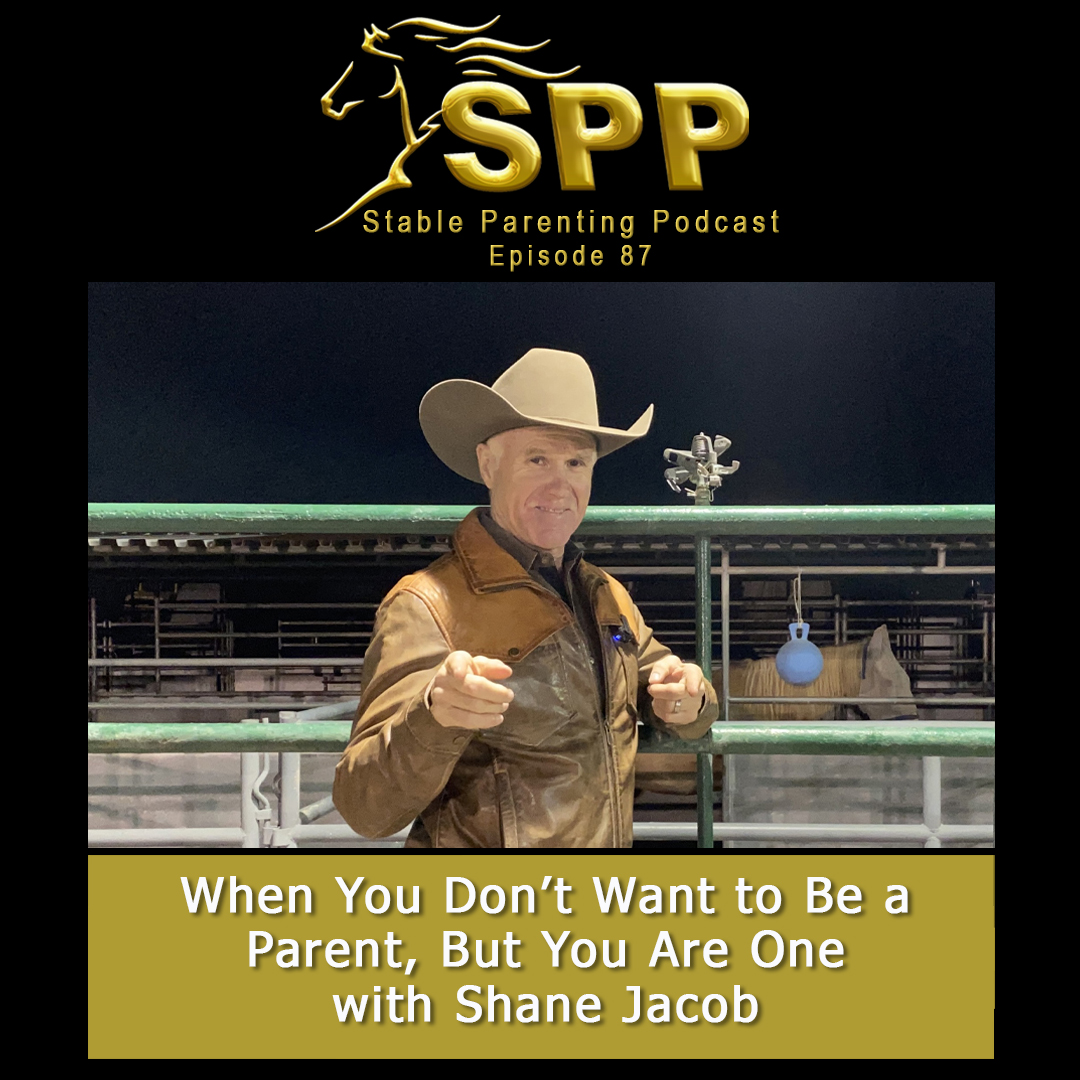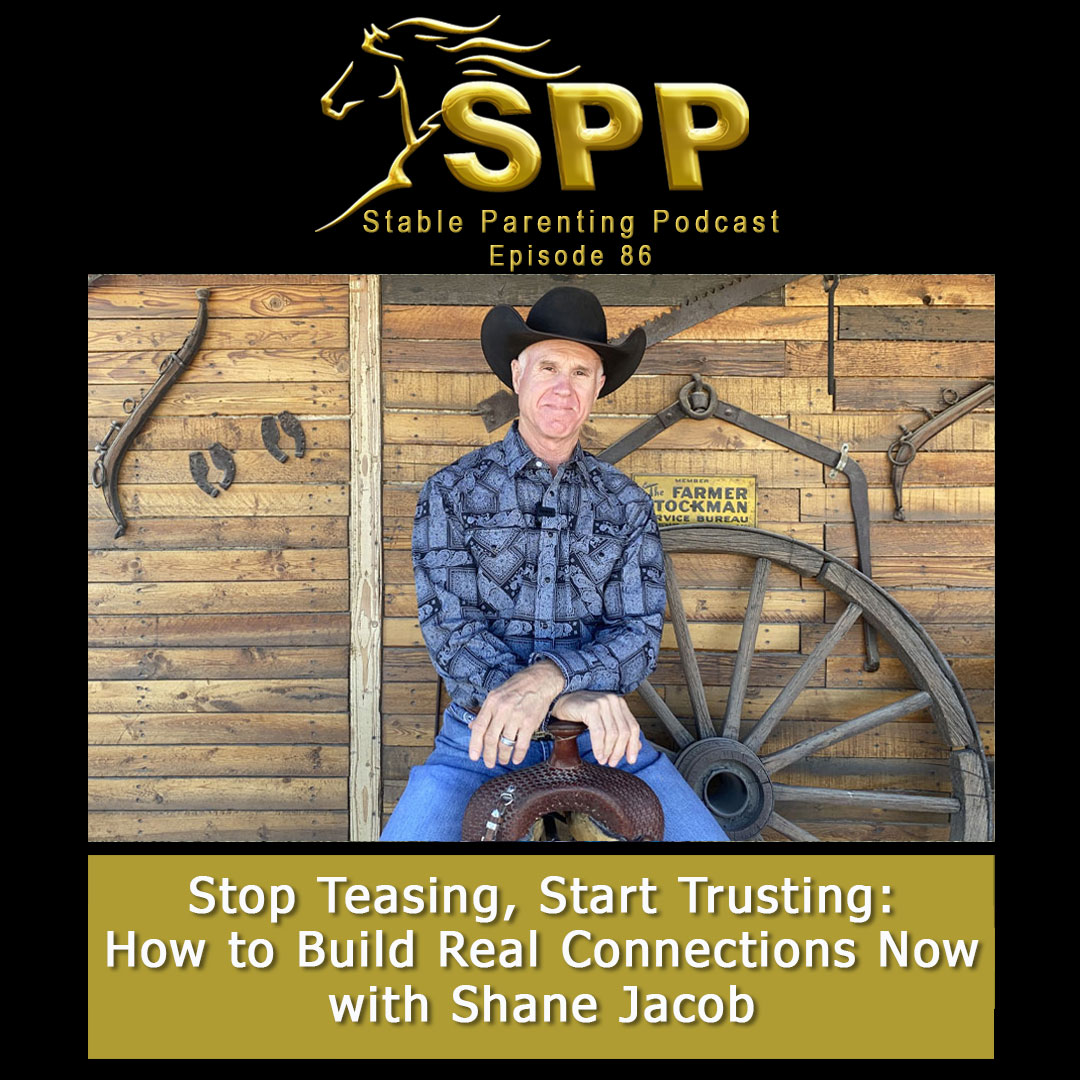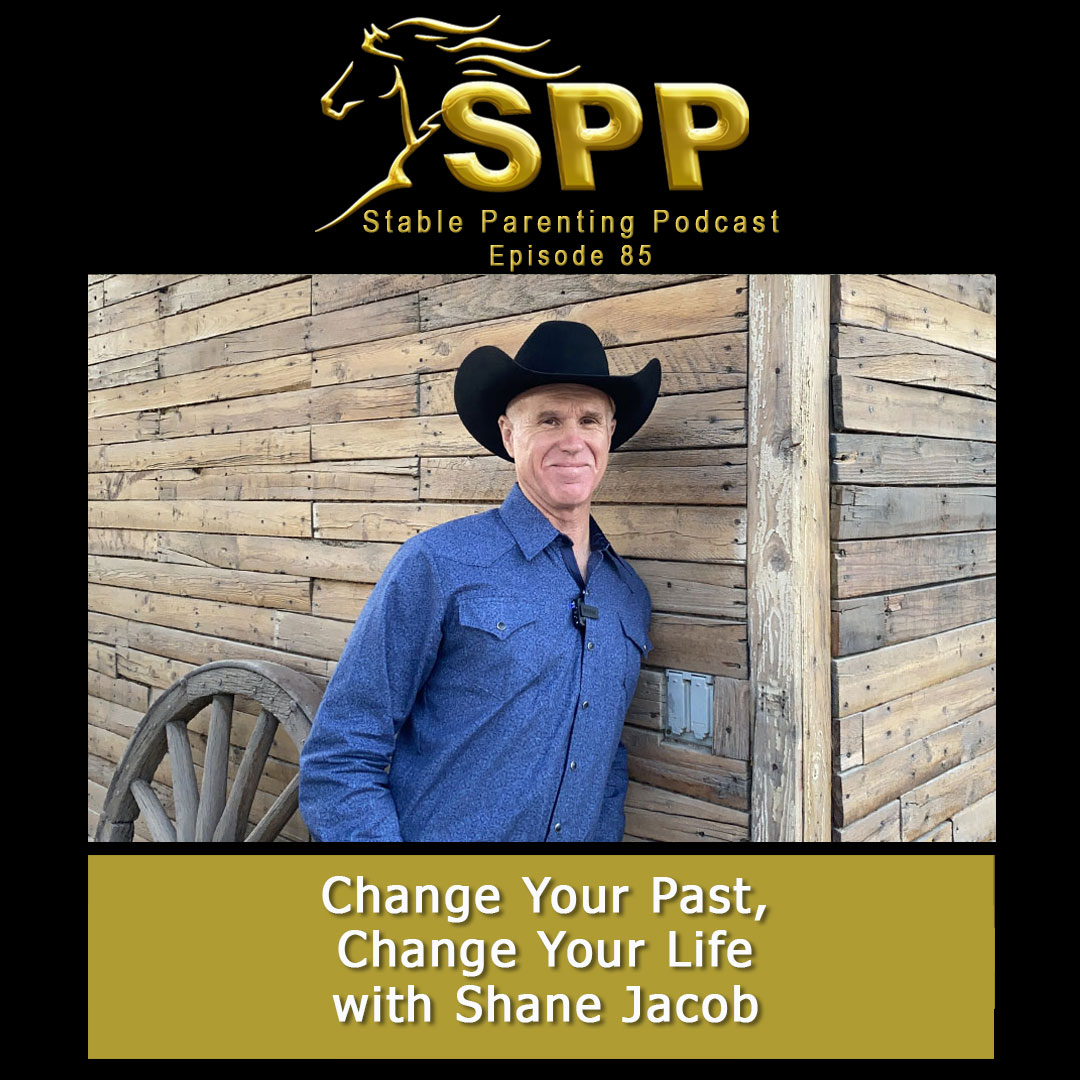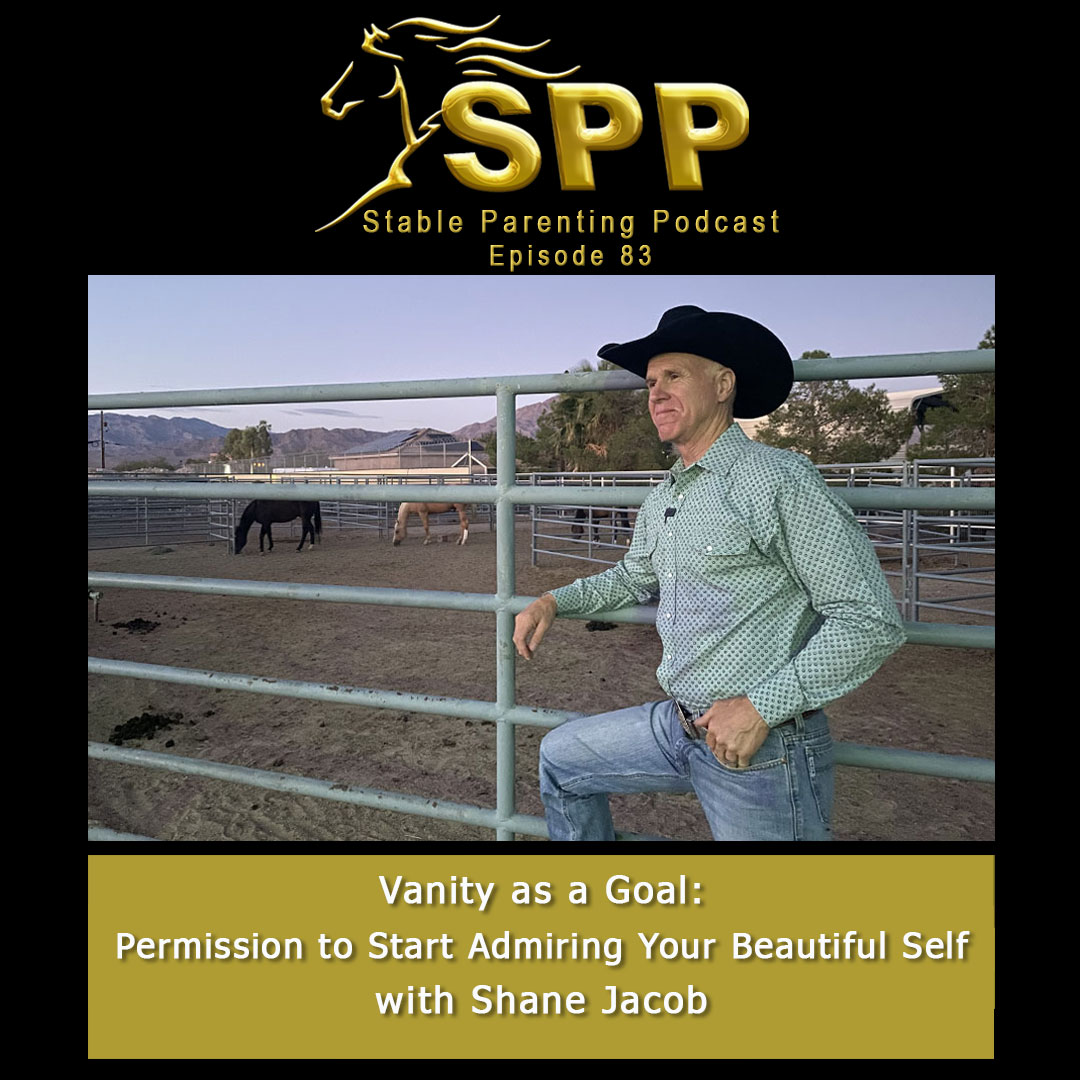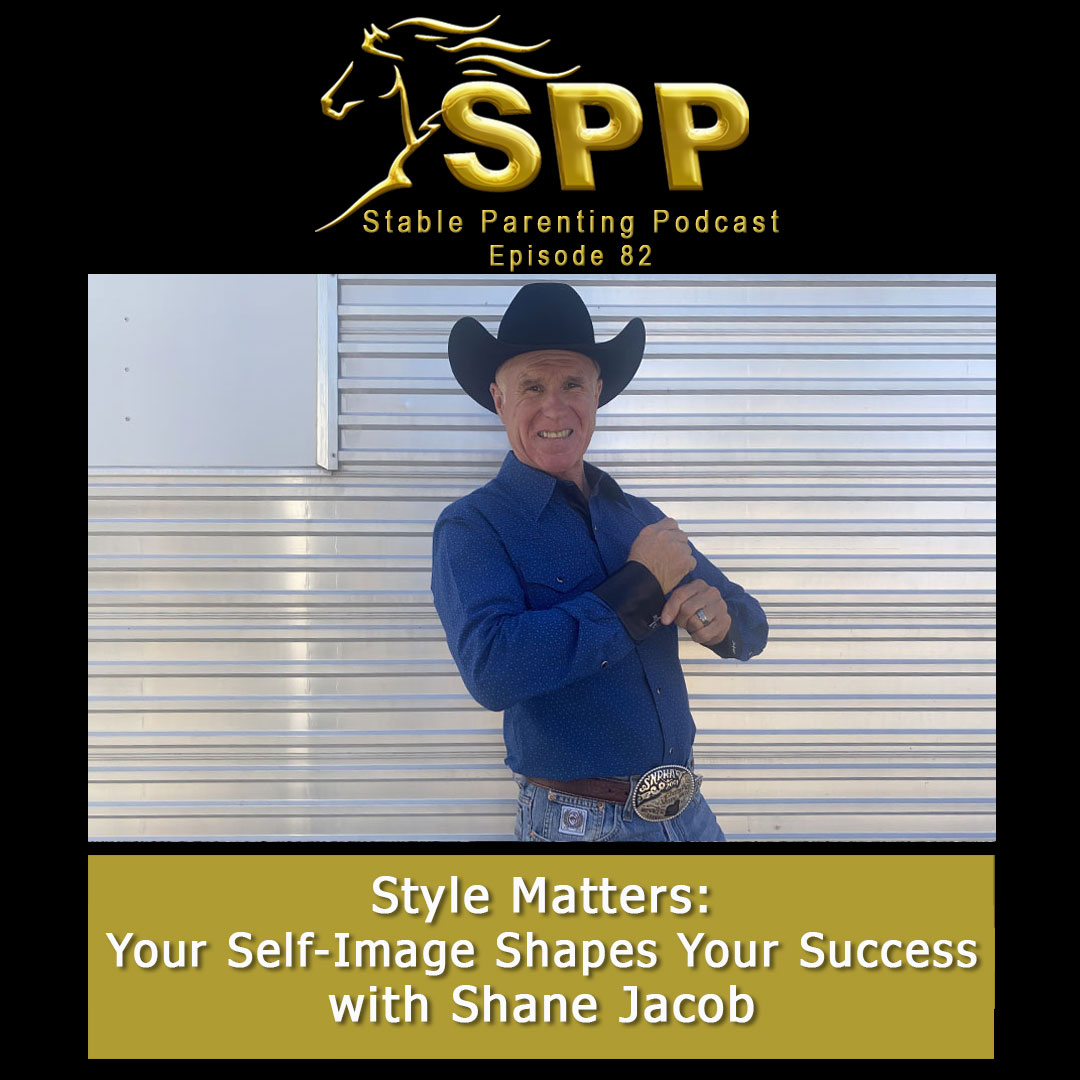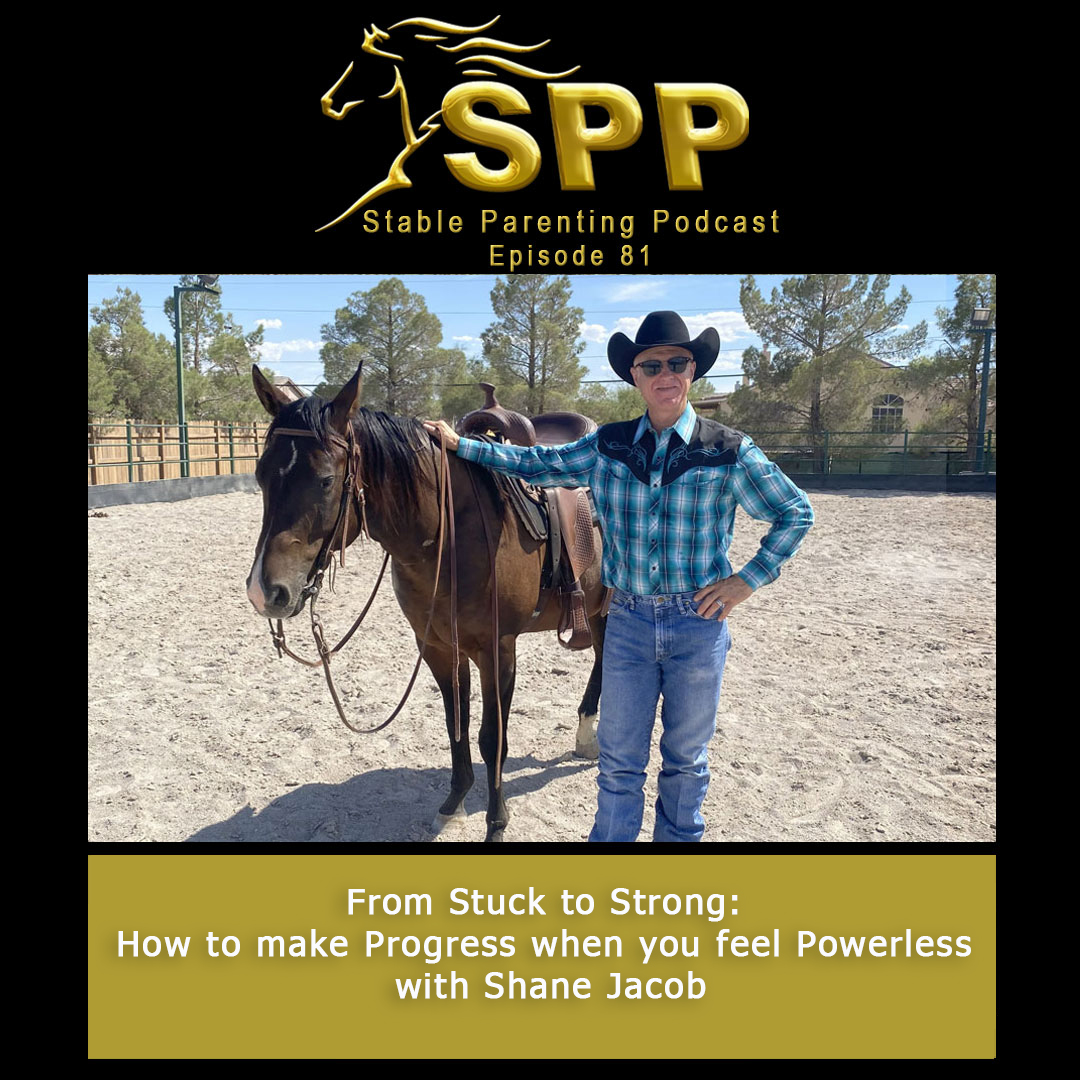Shane shares a 3-step system to overcome shame from your mistakes and love your imperfections.
Welcome to You Are Destined For Greatness
Hey, welcome to this week's You Are Destined For Greatness. I appreciate you taking your time to be here with me today to talk about horses and humans.
You know, one of the things that I've realized over the last couple years is that little adjustments that we make with horses yield big results. What do I mean? I mean a little change in a leg position, a little bit of difference of where I hold my hand. Little things that seem a little—they're seemingly small to me—have a big result. That horse, it means more to the horse because my result is incredible for these minor adjustments.
Small Adjustments, Big Results in Life and Horses
Same thing holds true with our lives, right?
And so what I want to—today, this week's podcast message—I encourage you to check it out. I have a three-step system to go to, to love your imperfections in three simple steps. And I—it was based on—my three-step system is based on Dr. Michelle Maidenberg’s, I got the idea from her in her book Ace Your Life. She was on our podcast two times, I encourage you to check it out. Search Dr. Michelle Maidenberg Ace Your Life and check out those two podcasts. The book is amazing—check it out. I highly recommend it.
Stop the Negative Self-Talk
So here's the deal. Well, we—it's almost our default, okay?—is to constantly be down on ourselves. Can't believe I did that. Can't believe I did that. What's the matter with me? I'm just like disgusted with myself, ashamed with myself. I should have known better. I can't believe I did that. And so on, okay? That's a default.
If we leave it at that, our brain unconsciously is making us mean that about ourselves. And the things that it's making us mean are not what we want because it's going to come out of us in a way that's also not going to be what we want when we present to the world—because our beliefs equal our results in our lifetime.
Three Steps to Self-Acceptance
So, how do we get from—how do we—we're imperfect human beings. How am I gonna love the things that I'm not happy that I've done? 'Cause we're gonna do some things—if you're me, and you know me—a lot of things, all the time, that I want, I wish that I had done different. I want to do it differently. I want to be better than that. How am I gonna be happy about that, Shane?
So here's the three steps to go through it, okay? There is an outline. Check out the podcast. There's an article also on the website stablelivingcoaching.com. You can find out more there. So here's the three steps.
Step One: Connect to a Core Value
Number one is to connect your behavior—what you've done—to a core value. Okay? So here's an example. If I treated somebody unkind or disrespectful and I'm not happy about it, and I'm feeling ashamed, and I'm feeling bad of why I did it, or what I did—either one, what or why—then I connect it with my value. In this example, that I believe in treating people the way that I want to be treated: with kindness and respect. Okay? So that's my value, okay? So step one is to connect it with the core value that you have.
Step Two: Make Amends Where Possible
Step two is to make amends where possible. Everything can't be fixed, but where possible, make amends. And remember, it's not just about them—it’s mostly about you. Okay?
Step Three: Reframe the Event
Step three is to frame it. Frame the event in a way that connects to your core value in a positive way. And every time you think about it, say how you've reframed it outloud or think it in your mind.
So here's—here's my example. In my example, I treated somebody in a way that I wished I wouldn't have. I connected it to my value of living the golden rule—that’s my value. Then, I went back and I apologized to the person and said, “Hey, man, I'm sorry I did that. I apologize. I didn’t want to come out to you. I didn't mean to make you feel bad, and I hope you can accept my apology.” And I left it at that.
What they did with it—fine—but I had done what I could to try to make it well in the best way that I knew.
Step three is to frame it, okay? To change my mindset with the value. Here's what I mean. The reason that I was upset and it didn’t feel good—the reason I was ashamed of myself—is because I believe in treating people well. That's a positive thing, okay?
Now I've went back and reframed it. I even went so far as to say, “What can I do to not have this happen next time?” and got me a little, you know, kind of system to helpfully hope avoid that.
Why You Should Be Proud of Yourself
So here's what I've done. I'm upset because I believe in treating people with kindness and respect. You know, I'm proud of myself because that's the way I want to be. I'm proud of myself. I'm proud of myself for not being happy—I don’t want to be happy when I don’t come out the way I want to.
I'm happy that that didn’t feel good. I'm happy that I went back and fixed it. And I'm happy that I have a new strategy next time to try to not—so that I don't do that. Okay?
With that, every time I think about that instance, you know what I think?
“Hey, I'm pretty amazing, Shane. Shane, you did well. You made a mistake. You're an imperfect human being and you have solid values—is why you're unhappy. I don’t want to be happy about when I don’t come out right. And so that's a good thing. I went and I made it as well as I could, and I have a system set up for next time. Hey, I am pretty extraordinary.”
Final Thoughts and Invitation
Okay, what I want you to do is think these three steps through. You can hear more detail about it in the podcast, and even more—you can find out more about Stable Living Coaching. Check us out. Come talk to me in person.
But what I want you to do is to know that regardless of what you've done or what you haven't done, okay, you are 100%. It’s not even up to you. It’s not a decision you get to make. It’s by divine—it’s by design, by divine design, okay?
It’s not your decision that you're a hundred percent—you’re a hundred percent regardless of what you did, okay? And framing it, going through these three steps will help you internalize it and believe it about yourself, which is going to make your life so much more amazing. Trust me on this one, stay with me.
You Are Destined For Greatness
Thank you for taking your time to be here today, and remember, You Are Destined For Greatness.


